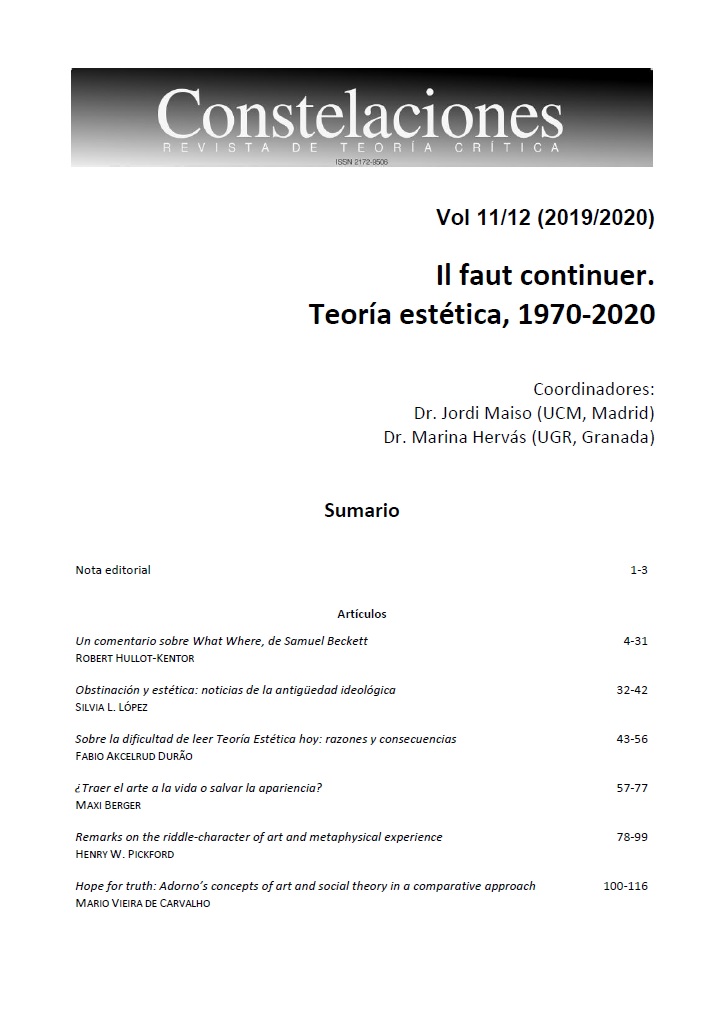Hope for Truth: Adorno’s concepts of art and social theory in a comparative approach
Keywords:
art, social theory, truth content, critique of ideology, music as art's paradigmAbstract
The constellation in which Adorno’s unity of thought comes to light – the critique of science as ideology, the overcoming of the distinction between philosophy and sociology, the concept of art as the beginning and end of philosophy, knowledge (Erkenntnis) as constituens of both (art and philosophy), presupposes a close relationship between his theory of art and his social theory. In other words, from Adorno’s aesthetic theory, and especially from his musical writings, a concept of art emerges that essentially coincides with his concept of social theory. The purpose of the present paper is to discuss this mirror-like relationship. In fact, postulates such as the interaction between object and method, the overcoming of deductive method and descriptive knowledge, the subject-object dialectics, the prefiguration of the non-identical from a tendency, the resistance of the singular to totalizing systems, the critique of ideology as a critique of language – among others with which they are correlated – are inherent to Adorno’s concepts of art and social theory. They have both in common, as it should be inferred from Adorno’s thinking, the hope for truth.
Downloads
Downloads
Published
How to Cite
Issue
Section
License
Copyright (c) 2020 Mario Vieira de Carvalho

This work is licensed under a Creative Commons Attribution-NonCommercial-ShareAlike 4.0 International License.
Authors who have publications with this journal accept the following terms:
1. Authors will retain their copyright and grant the journal the right of first publication of their work, which will be simultaneously subject to the License of recognition of Creative Commons CC BY-NC-SA 4.0 that allows third parties to share, redistribute and adapt the work provided it is for non-commercial purposes and its author and first publication in this journal is indicated.
2. Authors may adopt other non-exclusive distribution license agreements for the version of the published work (e.g., depositing it in an institutional electronic archive or publishing it in a monographic volume) provided that the initial publication in this journal is indicated.
3. Authors are permitted and encouraged to disseminate their work via the Internet (e.g., in institutional telematic archives or on their website) before and during the submission process, which can produce interesting exchanges and increase citations of the published work. (See The Effect of Open Access).
Data confidentiality
1. Constelaciones. Revista de Teoría Crítica guarantees that the data you send us will only be used to meet the requests made in this message.
2. Your data will not be passed on to third parties.
3. You may request that your data be removed from our records at any time.





